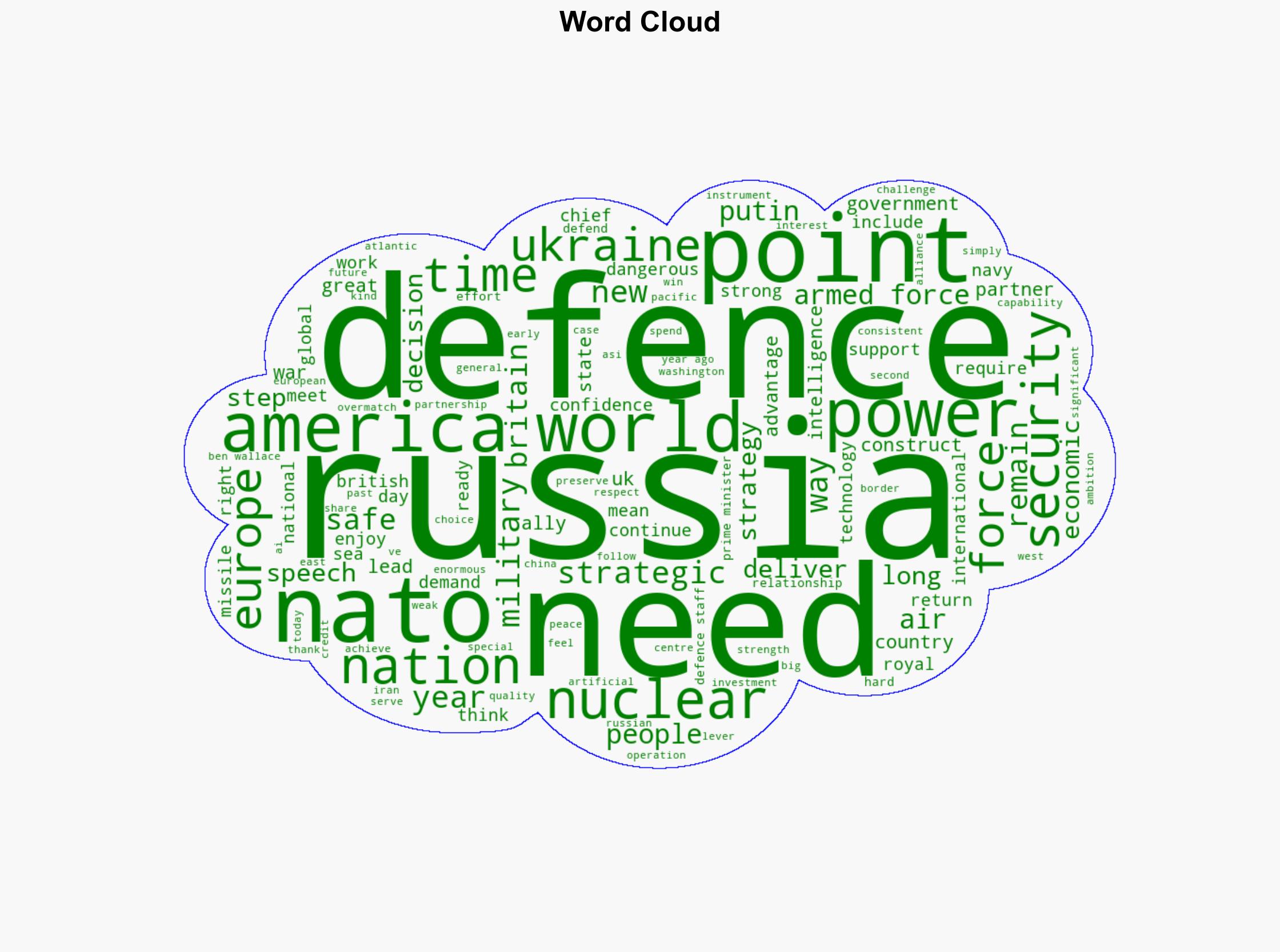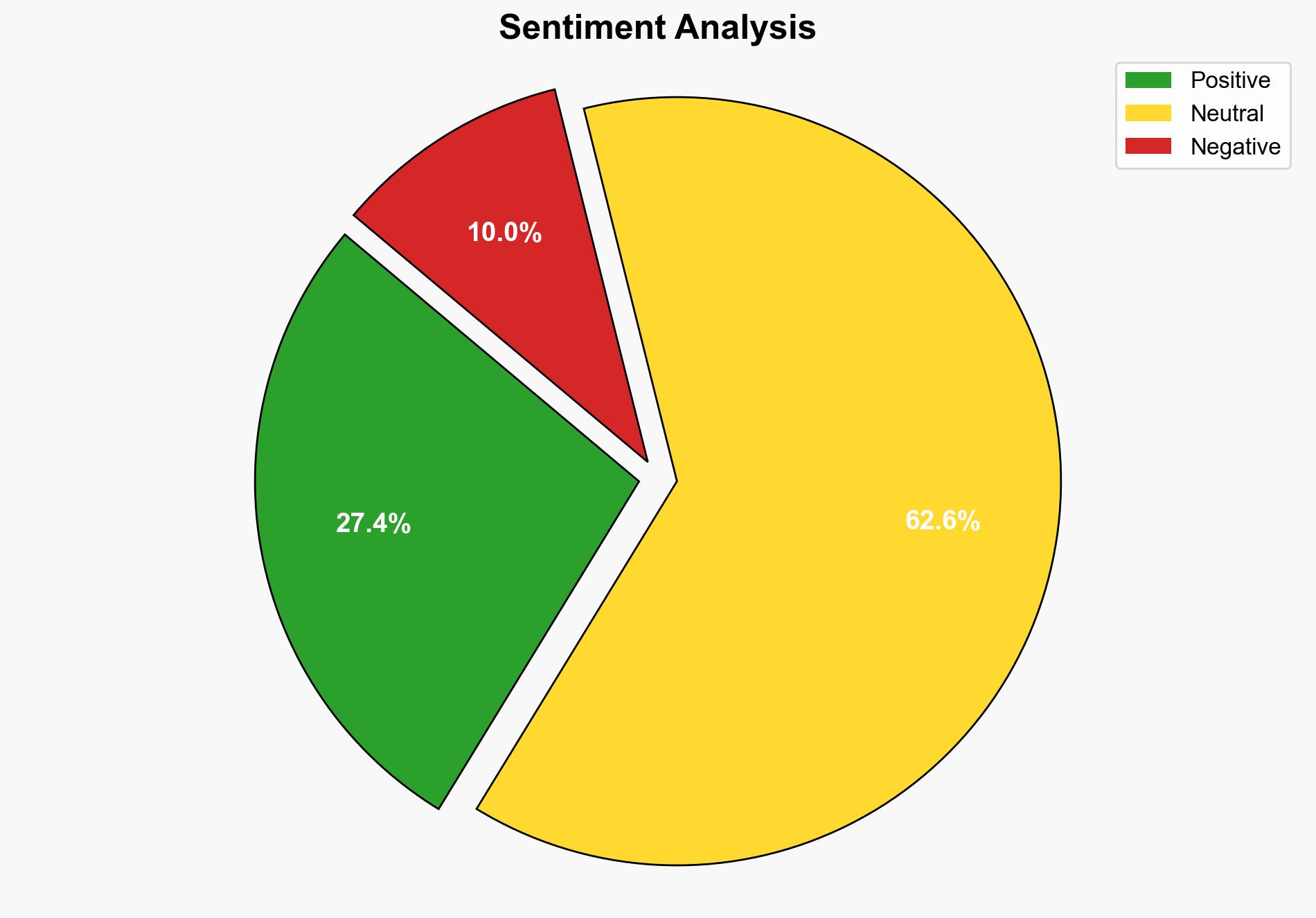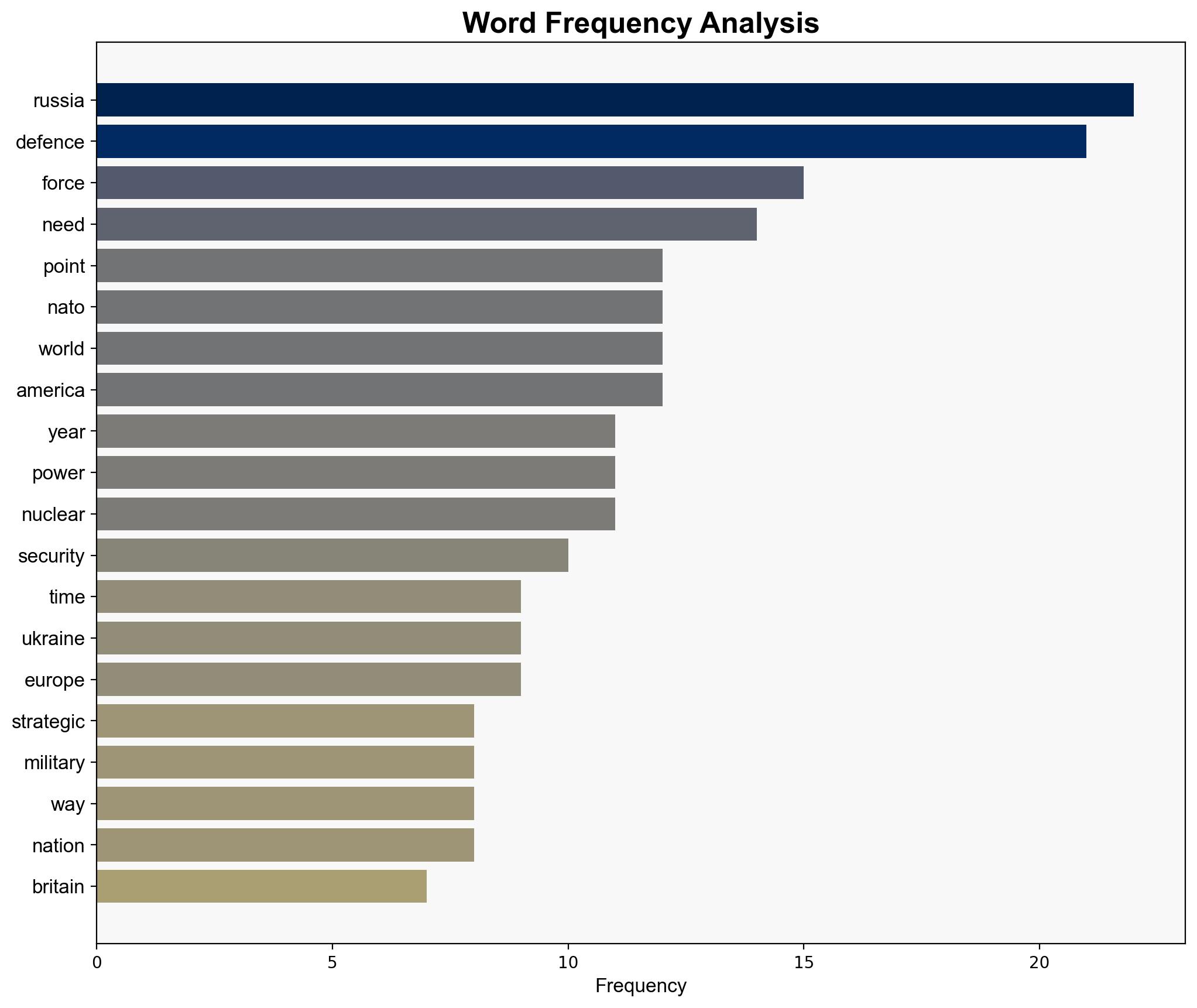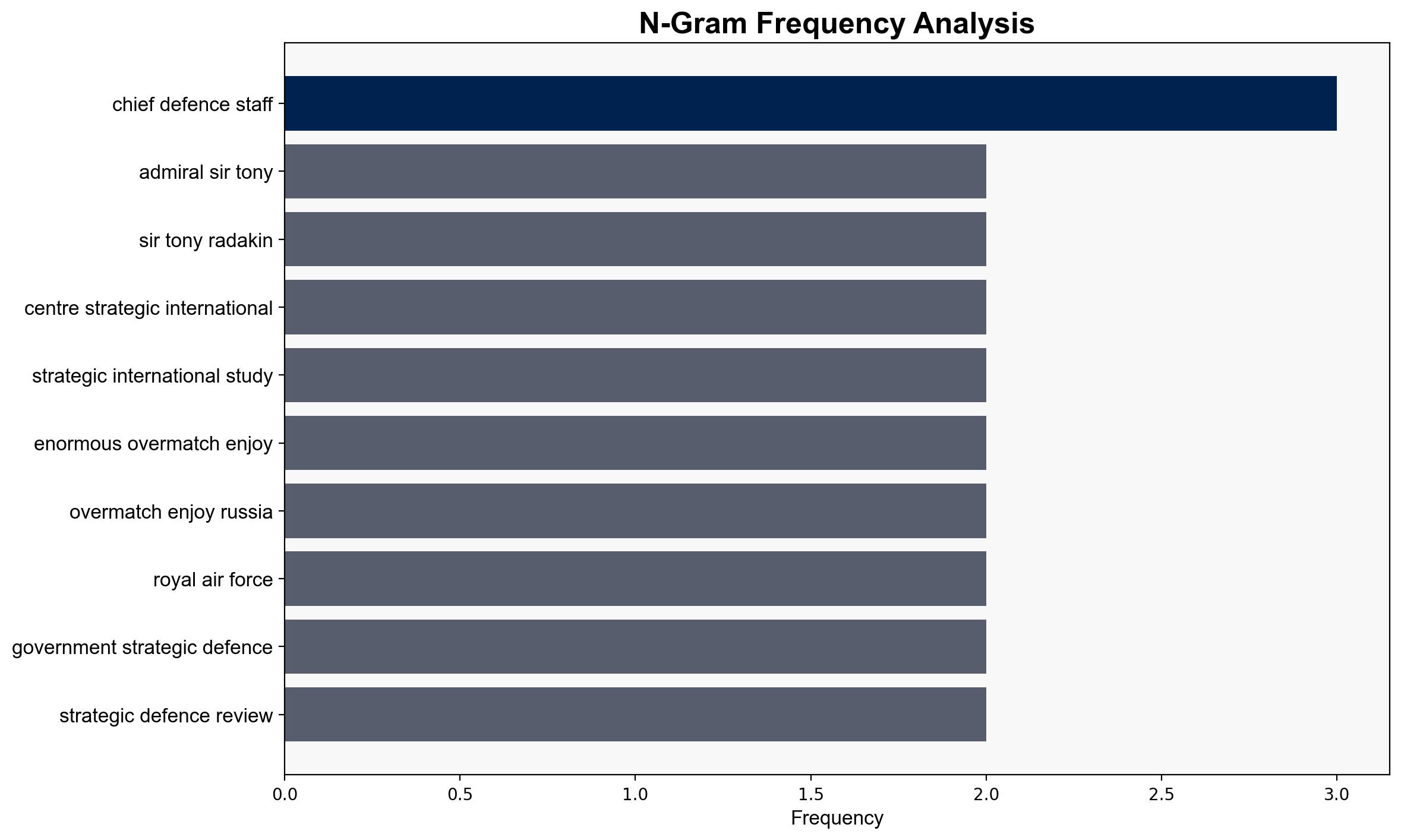Chief of the Defence Staff speech to CSIS – Globalsecurity.org
Published on: 2025-08-16
Intelligence Report: Chief of the Defence Staff speech to CSIS – Globalsecurity.org
1. BLUF (Bottom Line Up Front)
The speech by Admiral Sir Tony Radakin at the CSIS highlights the UK’s strategic posture in response to global security challenges, emphasizing NATO’s strength and Russia’s perceived weaknesses. The most supported hypothesis suggests that the UK is positioning itself as a proactive leader within NATO, leveraging its military and intelligence capabilities. Confidence Level: High. Recommended Action: Strengthen alliances and enhance technological capabilities to maintain strategic advantage.
2. Competing Hypotheses
1. **Hypothesis A**: The UK is actively reinforcing its leadership role within NATO to counter Russian aggression and bolster global security systems. This is supported by the emphasis on military readiness, international partnerships, and technological advancements.
2. **Hypothesis B**: The speech serves primarily as a domestic political tool to project confidence and stability, rather than indicating a significant shift in military strategy. This is suggested by the consistent narrative of optimism and the focus on past successes.
Using ACH 2.0, Hypothesis A is better supported due to the detailed references to military deployments, international collaborations, and the strategic importance of technology, which align with broader NATO objectives.
3. Key Assumptions and Red Flags
– **Assumptions**: It is assumed that NATO’s strength and Russia’s weaknesses are accurately assessed and that the UK’s military capabilities are sufficient to lead effectively.
– **Red Flags**: The speech may overstate the UK’s influence or underplay potential challenges within NATO. There is a lack of specific details on how technological advancements will be achieved.
– **Blind Spots**: Potential underestimation of Russia’s adaptive strategies and the complexities of international alliances.
4. Implications and Strategic Risks
– **Geopolitical**: Strengthening NATO could deter Russian aggression but may also escalate tensions, leading to increased military confrontations.
– **Economic**: Increased defense spending could strain the UK’s budget, impacting other areas of public policy.
– **Technological**: Focusing on AI and other technologies presents opportunities but also risks of cyber vulnerabilities and ethical concerns.
– **Psychological**: The narrative of confidence may bolster public morale but could lead to complacency if threats are underestimated.
5. Recommendations and Outlook
- Enhance intelligence-sharing mechanisms within NATO to improve collective threat assessment and response capabilities.
- Invest in cybersecurity infrastructure to protect against potential technological vulnerabilities.
- Scenario Projections:
- **Best Case**: Strengthened NATO deters aggression, leading to stable international relations.
- **Worst Case**: Escalation of tensions results in military conflict and economic downturn.
- **Most Likely**: Continued strategic posturing with periodic diplomatic engagements to manage tensions.
6. Key Individuals and Entities
– Admiral Sir Tony Radakin
– Boris Johnson
– Ben Wallace
– Liz Truss
– Rishi Sunak
– Keir Starmer
– John Healey
7. Thematic Tags
national security threats, NATO strategy, military readiness, geopolitical stability, technological advancement





